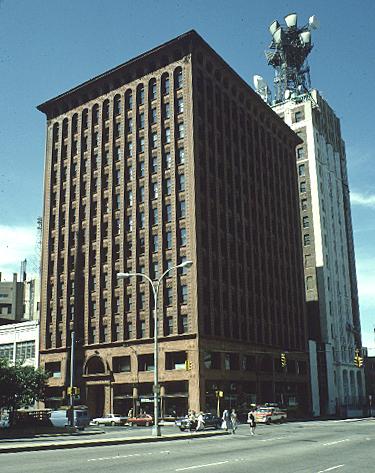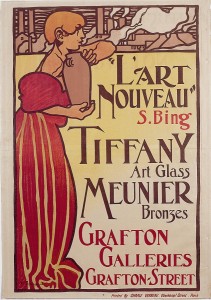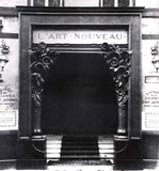AROUND 1890 a new art briefly flourished in the architecture, interior design, and decorative arts of Europe and America.
The term Art Nouveau comes from the shop of the same name opened at the corner of the rue de Provence and the rue Chauchat in 1895 by Siegfried Bing. He, along with a number of other dealers who had been selling Japanese works of art, championed the fresh, new mode that was sweeping Paris.
The movement did not begin as a single entity, but as a number of styles that drew on the fluid lines and writhing curves of plants for visual inspiration, and aimed at raising what had previously been considered the minor arts to a high critical and theoretical status. The style known as Art Nouveau in France and Belgium was related to the Arts and Crafts movement in England, to Jugendstil in Germany and Austria, Stile Liberty in Italy, and Modernismo in Spain.
These new styles embraced the principles of late nineteenth – century Symbolism and gave them an additional moral focus – making the spiritual concrete through a complete, organic synthesis of structural and decorative components in objects intended for everyday use. Functionality became inseparable from beauty. The social aim was to provide pleasing and uplifting surroundings at a price affordable to a broad segment of society rather than just the priviledged few.
Once popularized, the new style suffered from codification and indiscriminate use. As it quickly lost its freshness, it was known by pejorative names such as the subway-entrance style (from Hector Guimard ‘s famous Paris Métro entrances). By 1910, it was considered old fashioned.
Slide 1: W. Morris, ‘Willow and Vine’ wallpaper, 1870s
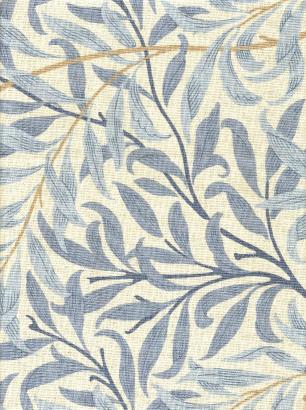
Slide 2: Art Nouveau poster for Tiffany glass exhibition at the Grafton Galley, London 1899, color lithograph, design by Frank Brangwyn (1867–1956)
Slide 3: Shop ‘L’ Art Nouveau’ exterior view
Slide 4: detail of doorway on Rue Chauchat, Paris 1895(image not found)
Slide 5: interior designed by Henry van de Velde, 1895(image not found)
Slide 6: Henry van de Velde dress with Art Nouveau motif, 1900
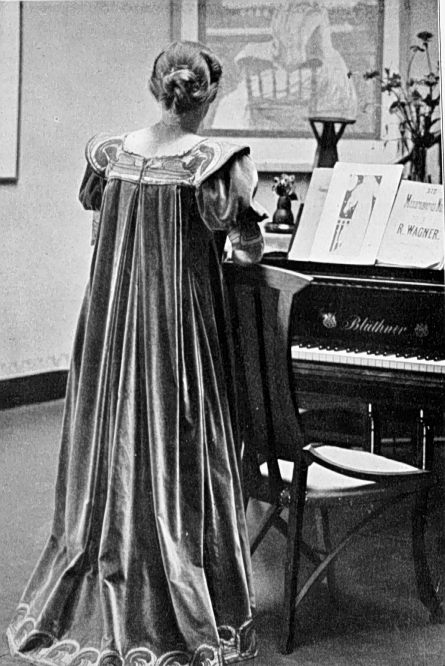
Van de Velde
Slide 7: Antonio Gaudi Guell Palace, Barcelona, 1885-9 (Facade, hall)
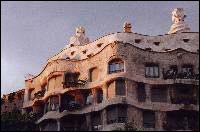
Slide 8: Antonio Gaudi Guell Park, Barcelona
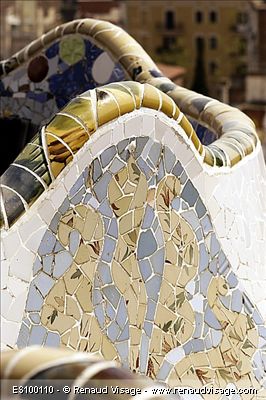
Slide 9: Gustav Klimt Poster for the first Secession Exhibition, 1898
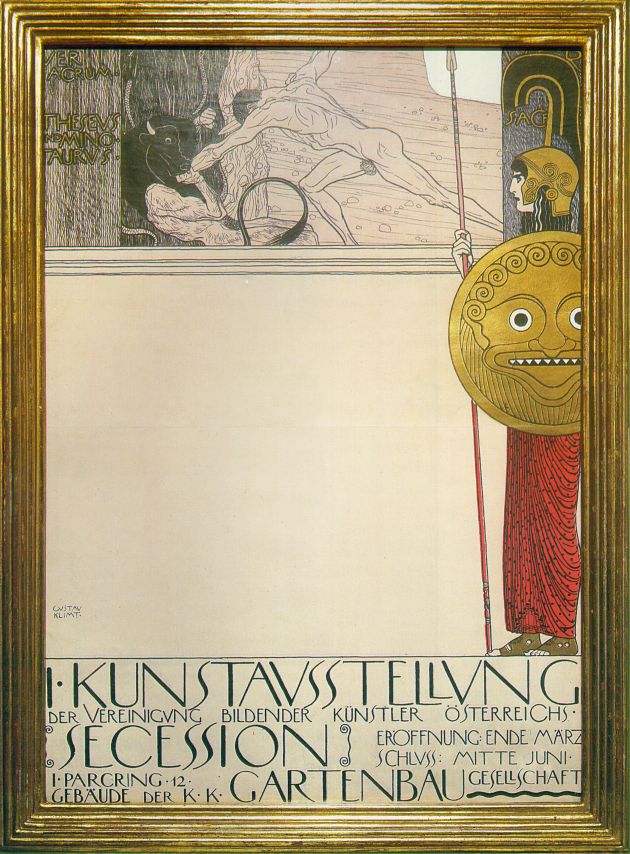
Slide 10: Gustave Klimt uncensored/censored(image not found)
Slide 11: Louis Comfort Tiffany Folding Screen, c. 1900
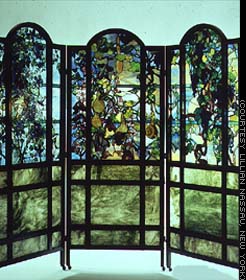
Slide 12: Louis Comfort Tiffany Vase, c. 1900
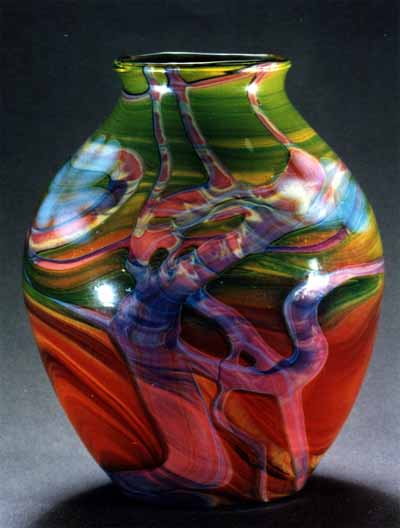
Slide 13: Hector Guimard Cafe Bar, Paris c. 1900(image not found)
Slide 14: Hector Guimard Metro Station c. 1900
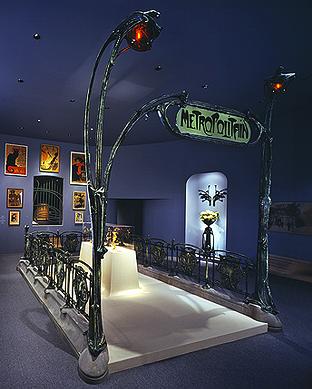
Slide 15: Hector Guimard Cabinet, c. 1899
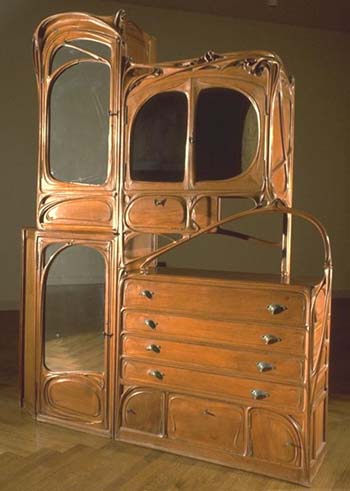
Slide 16: J. Lavirotte Paris apartment block, entrance, 1899-1900
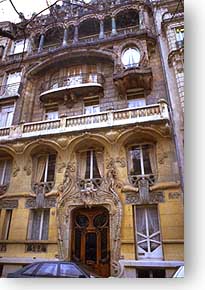
Slide 17: Victor Horta Tassel house, staircase and landing, 1893
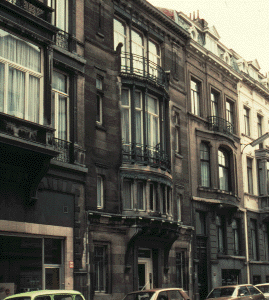
Slide 18: Joseph Hoffmann, Palais Stoclet, Brussels, 1906-11 models and exterior
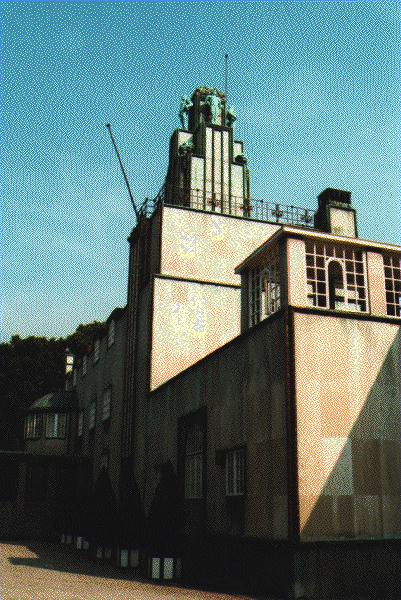
Slide 19: Joseph Hoffmann Dining room
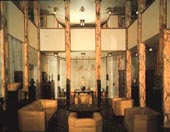
Slide 20: Gustave Klimt design for Palais Stoclet, dining room back wall
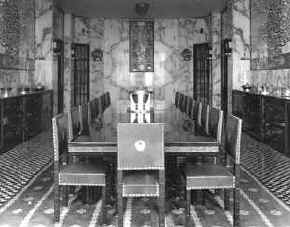
Slide 21: Gustave Klimt design for Expectation
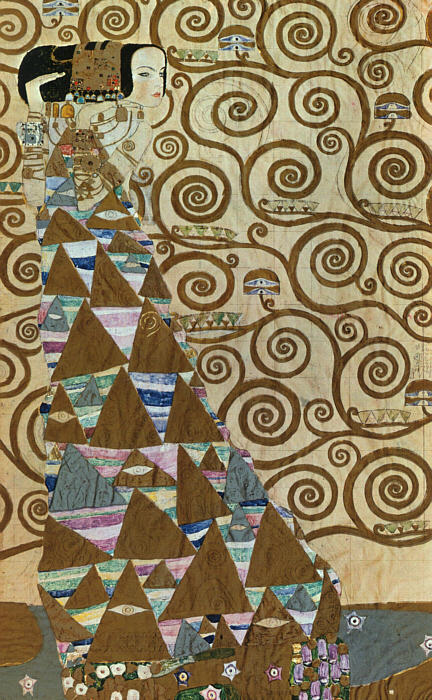
Slide 22: Gustave Klimt design for Fulfilment
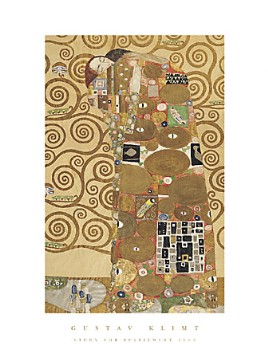
Slide 23: Joseph Hoffmann Palais Stoclet, Brussels, bathroom / seating area(image not found)
Slide 24: Gustave Klimt Medicine 1900-7
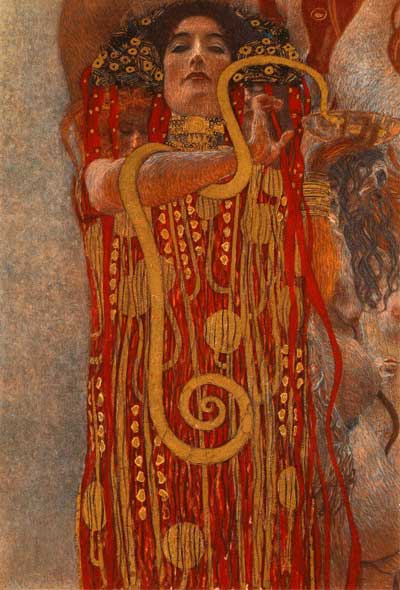
Slide 25: H. de Toulouse-Lautrec poster for P. Sescau, 1896
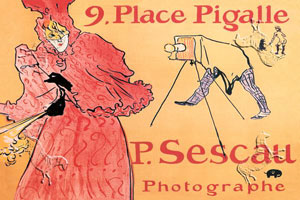
Slide 26: H. de Toulouse-Lautrec poster for the Moulin Rouge, 1891
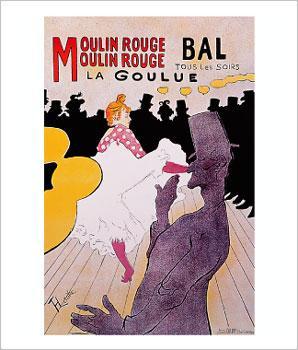
Slide 27: H. de Toulouse-Lautrec, Dance at the Moulin Rouge 1894
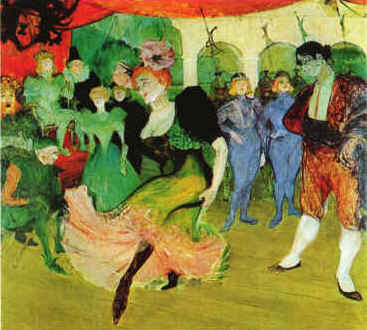
Slide 28: H. de Toulouse-Lautrec Jane Avril at The Moulin Rouge 1893

Slide 29: Eiffel Tour Eiffel, Paris, 1889 (postcard / engraving)
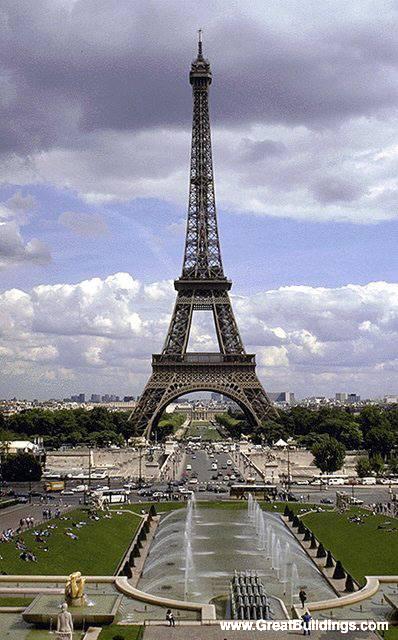
Slide 30: Gustave Klimt Judith I, 1901
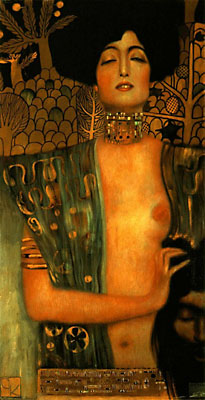
Slide 31: Gustave Klimt Judith II, 1909
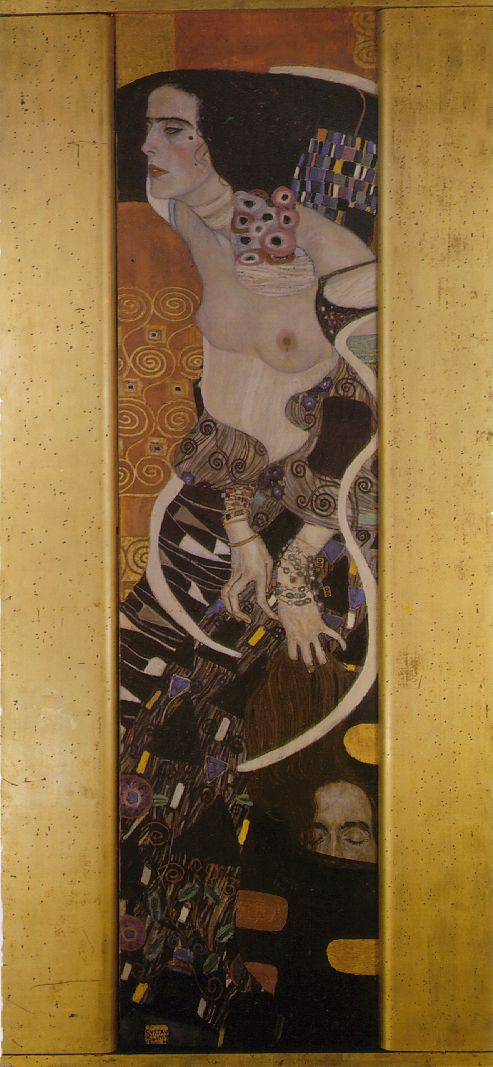
Slide 32: H. de Toulouse-Lautrec poster for La Revue Blanche, 1895
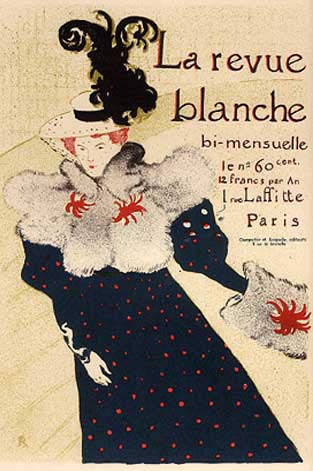
Slide 33: H. de Toulouse-Lautrec Poster for Reine de Jole, 1892
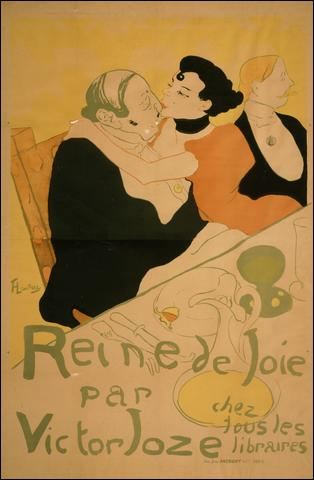
Slide 34: H. de Toulouse-Lautrec Divan Japonais, 1893
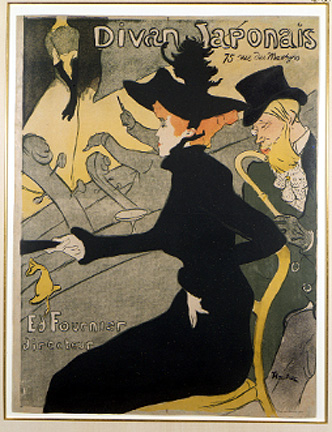
Slide 35: Advert for Bing Exposition de L’Art Japonais, 1883(image not found)
Slide 36: Charles R. Mackintosh Willow Tea Room facade and interior, Glasgow 1903-4
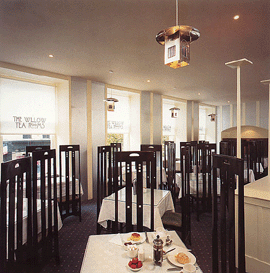
Slide 37: Charles R. Mackintosh chair for the Tearoom, 1904(image not found)
Slide 38: Charles R. Mackintosh studio-flat drawing room, Glasgow 1900
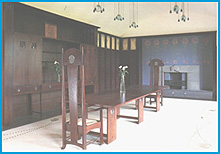
Slide 39: Charles R. Mackintosh Hill House, bedroom, Glasgow 1903
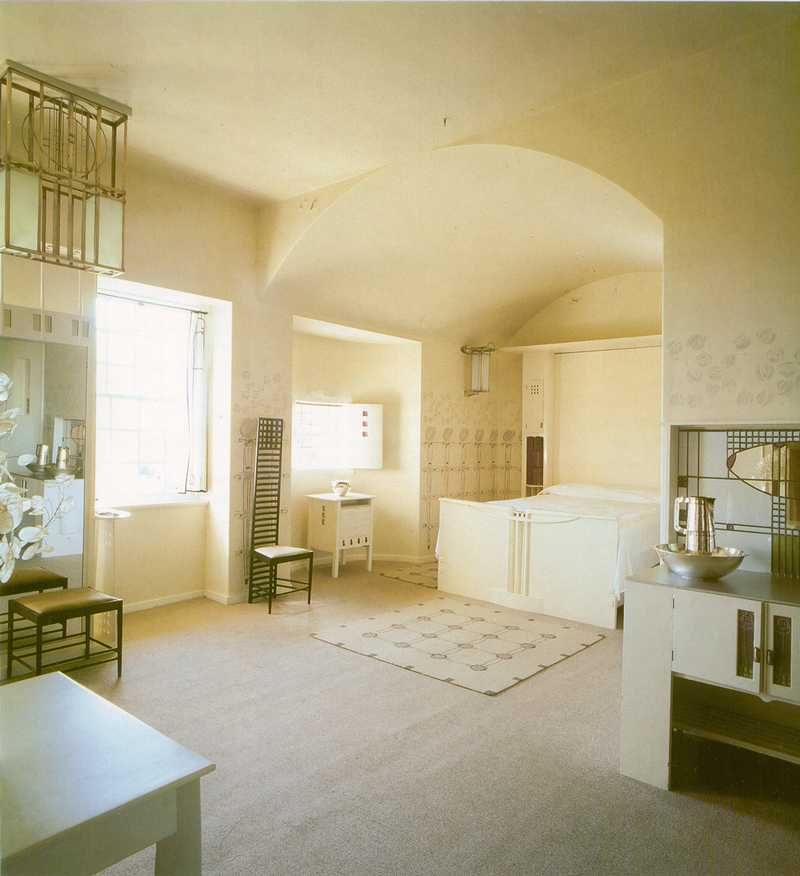
Slide 40: Louis Sullivan Wainwright Building, St Louis 1890-91
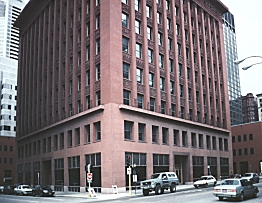
Slide 41: Louis Sullivan Guaranty Building, Buffalo, 1894
